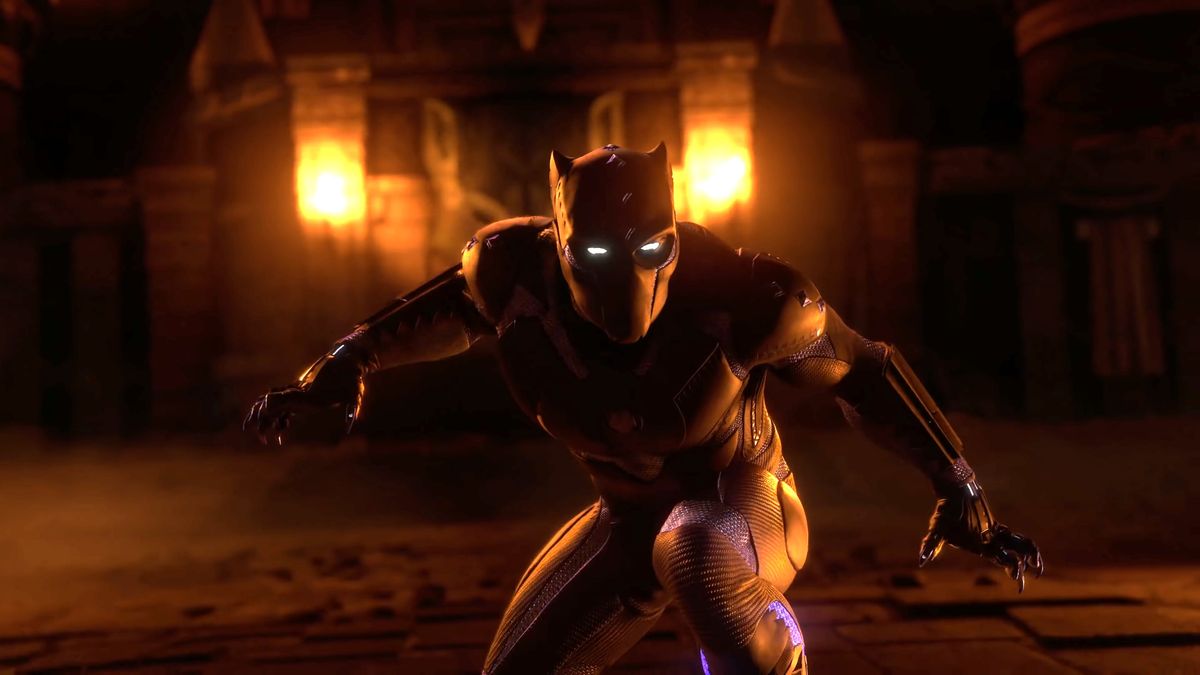Black lawmakers who fail to support a ceasefire resolution are betraying our legacy of racial justice
OPINION: Black voters must hold politicians accountable by imploring them to use their positions to support the principles of human rights to end the mass killings of Palestinians. The post Black lawmakers who fail to support a ceasefire resolution are betraying our legacy of racial justice appeared first on TheGrio.

OPINION: Black voters must hold politicians accountable by imploring them to use their positions to support the principles of human rights to end the mass killings of Palestinians.
Editor’s note: The following article is an op-ed, and the views expressed are the author’s own. Read more opinions on theGrio.
As a Black Palestinian, I feel abandoned by many of the Black government officials who claim to support racial justice and human rights. The majority of Black government officials continue to reject moral clarity and humanitarianism in favor of cowardice, ethnic cleansing and genocide.
Fortunately, masses of Black people are taking to the streets in solidarity with Palestinians. Organizations like the Movement for Black Lives and Dream Defenders, which have been at the forefront of national mobilizations against state violence and other manifestations of anti-Black oppression, explicitly support the decolonization of Palestine and Palestinian human rights. National networks like Black For Palestine — Black activists supporting Palestinian justice, liberation, and self-determination — recently released a statement of Black Solidarity with Gaza that advocates for a permanent ceasefire.
While it is true that “not all skin folk are kinfolk,” complicit Black officials like House Minority Leader Hakeem Jeffries ought to be particularly ashamed for their moral failure and dereliction of duty in support of Israel. These Black politicians are proving themselves to be nothing more than functionaries of a morally bankrupt and pro-genocidal U.S. state. With unwavering and ideologically incoherent support for white supremacy, police brutality and state-sanctioned terrorism, too often, Black officials neglect the spirit of our country’s racial justice movements. They are an affront to the legacies of civil rights legends and political groundbreakers like Fannie Lou Hamer and Andrew Young.
Let me be clear, I understand the way racialized power works to uplift some voices and silence others — that it allows certain bodies to move with impunity while others remain constrained. People publicly supporting Palestinians are facing backlash even without the constant precarity of living in a Black body.
But complicity is easy.
Despite rebukes and threats of violence, 11 Congressional Black Caucus members have already signed the ceasefire resolution to protect Palestinian lives. Representatives like Cori Bush, Andre Carson, Maxwell Frost and Barbara Lee are taking a bold yet ethical stand.
Other CBC members, like my Congressman Troy Carter, D-La., have shirked their power to legislate a permanent ceasefire resolution by defaulting to the thoughts and prayers refrain.
Signing the ceasefire resolution should be an easy and uncomplicated action for CBC members to undertake given that Israel is an overtly racist far-right government.
According to state propaganda, Israel is “the only democracy in the Middle East” — many disagree. In 2022, then-United Nations Special Rapporteur Michael Lynk confirmed that Israel comports as a “political regime which so intentionally and clearly prioritizes fundamental political, legal and social rights to one group over another, within the same geographic unit on the basis of one’s racial-national-ethnic identity,” or, an apartheid state. This designation is unsurprising given that Israel supplied weapons to apartheid South Africa deep into the late 1980s. White South Afrikaners are even converting to Orthodox Judaism to move to Israel and using their new Israeli citizenship to colonize Palestine’s West Bank in illegal settlements.
Black people in the U.S. are already acutely aware of the shortcomings of liberal Western democracies. From slavery to Jim Crow segregation, it has always been abundantly clear that neither the liberal philosophical ideals underpinning the nation nor the implementation of those stated ideals apply equally to everyone in our moral and legal communities.
Many of the same crimes against humanity that Palestinians are experiencing at the hands of the Israeli state are mass atrocities that have affected Black and African-descended people in the United States. Just as Black communities in the U.S. have endured state-supported mass murders like the Tulsa massacre and MOVE bombing, since Oct. 7 more than 15,000 Palestinians in occupied Gaza have been killed by Israel in what may one day be known as the Gaza massacre or Palestinian genocide. In the occupied territories of the West Bank and East Jerusalem, state-backed Israeli settlers and soldiers have lynched at least 238 Palestinians during the same period and continue to forcibly remove them from their lands, much in the same way the Ku Klux Klan terrorized, forcibly displaced and murdered Black people.
However, my intention is not to suggest that the Black and Palestinian struggles are identical. Believe me — they’re not. My point is if there is any group of people who might be especially adept at understanding the Palestinian plight, it is Black Americans. We have firsthand experience with the tactics and strategies of white nationalist projects. And some of us live in the trauma of racialized state violence, whether in the U.S. or Palestine.
As a Black person in the U.S., the forms of violence impacting non-Black Palestinians are the mechanisms of white supremacy with which I am intimately familiar. Government officials and journalists alike are labeling Palestinians as “terrorists” and “children of darkness” in an attempt to dehumanize and delegitimize our struggle against oppression. Another tool that Israel employs is rewriting its settler colonialist history. However, the notion that Palestine was “a land without a people” is a fabrication of the Zionist imagination and a poor attempt to deny the ethnic cleansing that began with the 1948 Nakba — the catastrophe when 75% of the entire Palestinian population was driven from their homes and land by European settlers aiming to colonize Palestine by force.
My hope is that just as racist rhetoric fails to distract us from the countless Black lives stolen by state violence, Islamophobic tropes will not be seen as justification for the attempted murders of Palestinian college students like Hisham Awartani, Tahseen Ahmed, and Kinnan Abdalhamid, or the brutal slaughters of Muslims like 6-year-old Palestinian-American Wadea Al-Fayoume and Pakistani-American Dr. Talat Jehan Khan on U.S. soil. Just the same, I pray that the terror I often feel in my Black body with an Arab name on this stolen indigenous land washes away in the ocean so that my sisters and brothers, nieces and nephews, aunts and uncles, and cousins do not have to endure the wrath waged against them by the $4.8 billion my taxes gift to Israel.
As an individual, I have little say over tax appropriations or power to influence government officials. But through civic engagement, direct action and mass mobilization, we have the collective power to demand, at the very least, that the elected officials who represent majority Black districts act as our representatives. We must hold Black lawmakers accountable by imploring them to use their positions to support the principles of human rights and racial justice we hold dear, rather than to tighten the brutal death grip of white supremacy at home and abroad.
It is not too late to save souls, and it is not too late to save lives. Demand your representative sign the ceasefire legislation today. Tomorrow might be too late.

Dr. Tabitha Mustafa is the Wharton Coalition for Equity and Opportunity Fellow at the University of Pennsylvania.
Never miss a beat: Get our daily stories straight to your inbox with theGrio’s newsletter.
The post Black lawmakers who fail to support a ceasefire resolution are betraying our legacy of racial justice appeared first on TheGrio.












